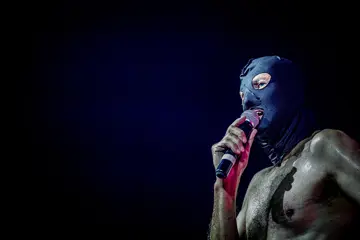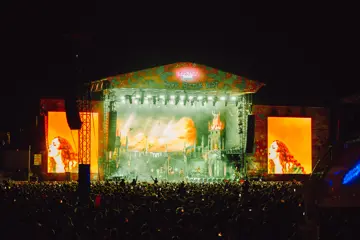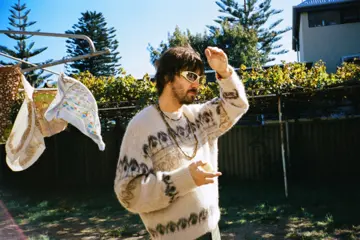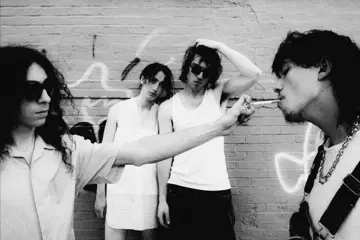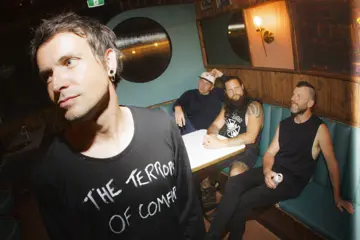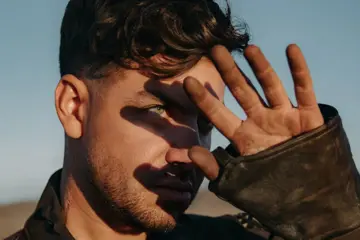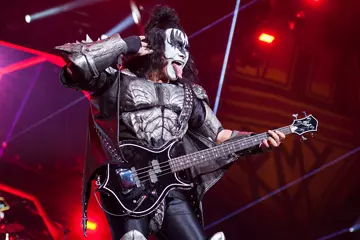Spanish singer-songwriter Rosalía’s anticipated album Motomami will be released this Friday, March 18, following lead singles, La Fama, featuring The Weeknd, Saoko and Chicken Teriyaki.
The album is virtually all-Spanish (track Hentai features a handful of English words, while Diablo features James Blake quietly versing in English too) and has a futuristic pop sound that picks and mixes from genres familiar to fans - reggaeton, electronica, flamenco as well as jazz and soulful traces.
The Grammy Award-winning artist’s first international hit came in 2019 on J Balvin collaboration Con Altura. Now, she has the attention of the mainstream US - being invited to appear on Saturday Night Live and The Tonight Show With Jimmy Fallon ahead of the Motomami release - proof of her reach without using English-language music and without really being mainstream.
She is a headline act in a growing trend of the last decade, helping put the spotlight on Spain, and no doubt helped by the stronghold of Spanish-language artists, like Puerto Rican Bad Bunny, Farruko, Ozuna, Anuel AA or Colombians J Balvin and Karol G.
Don't miss a beat with our FREE daily newsletter
Luis Fonsi and Daddy Yankee’s Despacito (2017) remains the biggest video in YouTube history (around six billion views) today, while Disney’s hugely popular film Encanto has had its Dos Oruguitas track nominated in this year’s Oscars. Only four non-English songs have ever won the Best Original Song category.
Thanks to online and social media opening, listeners, particularly younger generations, have been able to access global sounds not as freely available pre-Internet, with YouTube’s reach of 1.9 billion consumers per month driving a number of trends.
Although there have always been non-English crossover stars (think Gloria Estefan, ABBA and Shakira), they often had to sing in English or collaborate with English-language artists or producers in order to appeal.
Now, we may be on the cusp of the power dynamics flipping, with native English-speaking artists buying and requesting collaborations with non-English language artists (Rosalía herself teamed up with Billie Eilish on a Spanish-language track).
Billboard US noted how Vietnam and Belgium were among 10 non-English-language debuts, spanning seven distinct languages in the charts at the end of 2021, while international songwriting competition, Eurovision, has increasingly introduced a diverse range of languages with its entrants, and shown a rising appeal for more romantic sounding Spanish or Balkan languages.
There’s a global rise in Latin American music and K-pop (BTS reached 8 billion Spotify streams in 2020 and there is now a West End K-pop musical, titled Icon in development – even Rosalía references the Korean wave on track Bizcochito) and increasing industry investment into markets like Africa and India.
Has the popularity of artists like Nigerians CKay and Burna Boy, Jamican Popcaan, and Indian subcontinent artists like Neha Kakkar, Kumar Sanu, Alka Yagnik and Udit Narayan had a knock-on effect for opening mainstream opportunities to diaspora artists like Aussie-born Celina Sharma, homegrown artists like Milan Ring and Ashwarya, or US-born Davido and UK-based Tiwa Savage?
In the Southern Hemisphere, we see a continued rise of Indigenous artists in mainstream charts. Māori language songs are now central in the Aotearoa pop landscape, with the likes of Stan Walker and Teeks. A development not to be underestimated, given what previous generations had to endure for speaking in their Indigenous language and balancing this with a current welcome by Pakeha Kiwis, when it was shut down or ignored by previous generations.
A balancing act tested recently, when Lorde faced backlash for her Māori language album release. Similarly, Rosalía has drawn criticism for her usage of Latin and flamenco music, being accused of appropriating both. Her latest release responds defiantly to that, when she refers to ‘her Dominican homies’ on Candy. NPR podcast What Is 'Latin Music' Anyway? does a great delve, and flamenco culture equally, has a complex history intertwined with marginalised identities.
On one hand these artists are exposing local music cultures to global audiences, while global collaborations like French DJ Snake’s Taki Taki 2019 hit, featuring Ozuna, Cardi B and Selena Gomez, offer fun, diverse unity. But does it dilute local music cultures and the artists that represent those, who have been invisible or silenced for generations?
Even the likes of BTS are increasingly releasing tracks in English. It provides the group its biggest hits, given that an estimated 1.5 billion people globally speak it. And it’s those dominating artists – whether its BTS or Bieber that can take advantage of a single global release date for music (at the expense of smaller, native artists). English still has a stronghold – but only for now.
Only 360 million of all English speakers count it as their first language. Native English language cultures may have termed non-English language cultures as a minority as it colonised those nations. In reality, the collective of those distinct local cultures form the majority of the globe and they are taking advantage of the online democracy and freedom of platforms like YouTube to access, blend and fuse a diverse plethora of previously segregated sounds.
Perhaps hip hop could be a powerful example. From Kiwi and First Australian hip hop to local-language rap in European nations like Italy, Germany and the Netherlands – there has been a continued rise in mainstream charts of those nations - in France, many albums taking Top 20 positions are French rap. It continues to hugely inspire across the world, with its message of speaking out against discrimination and marginalisation, inspiring artists (Rosalía included) to create their own unique, distinctly local or individual sounds.





